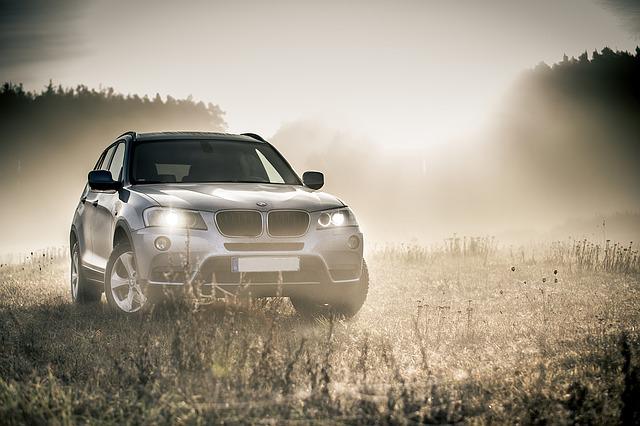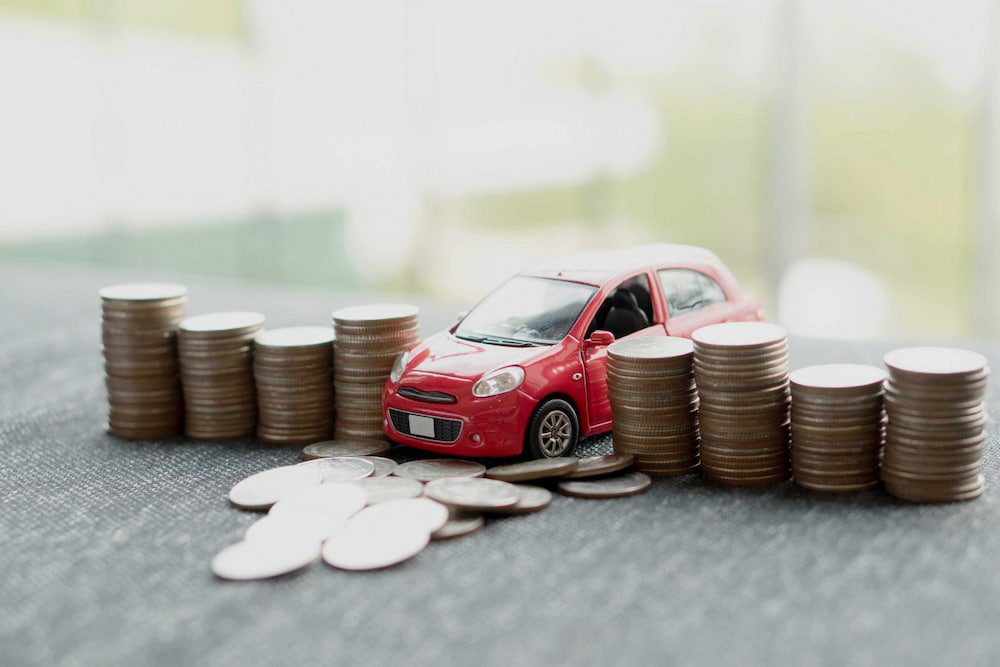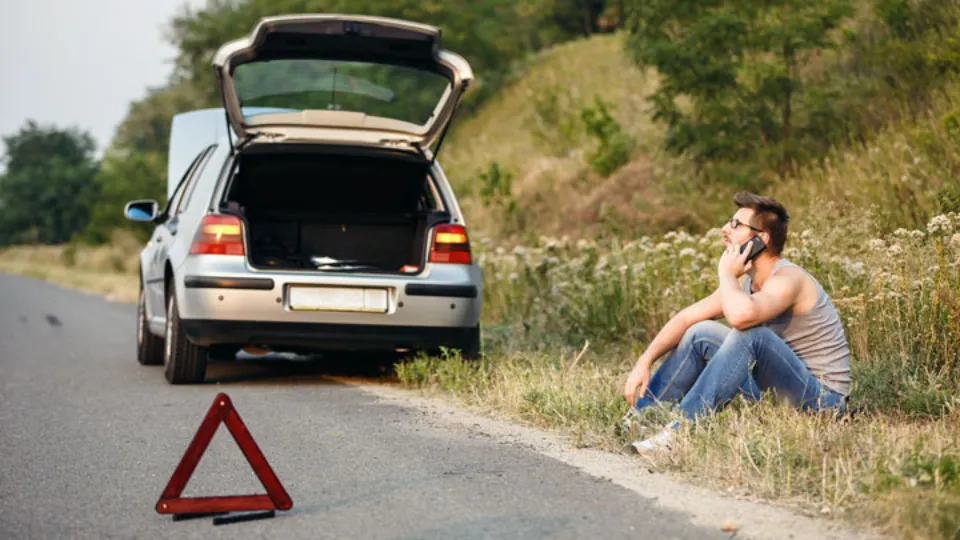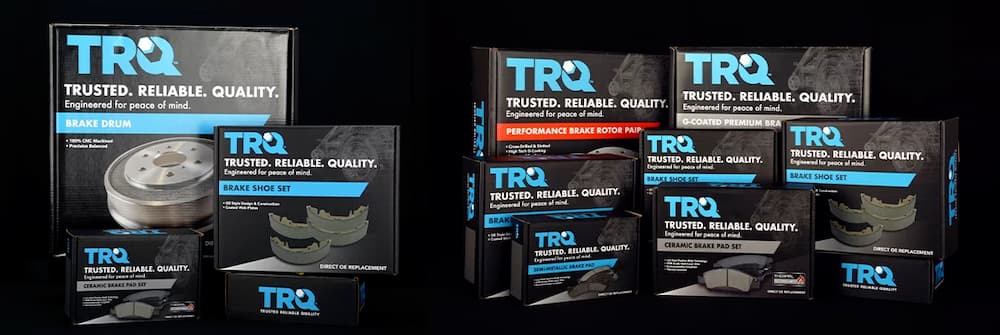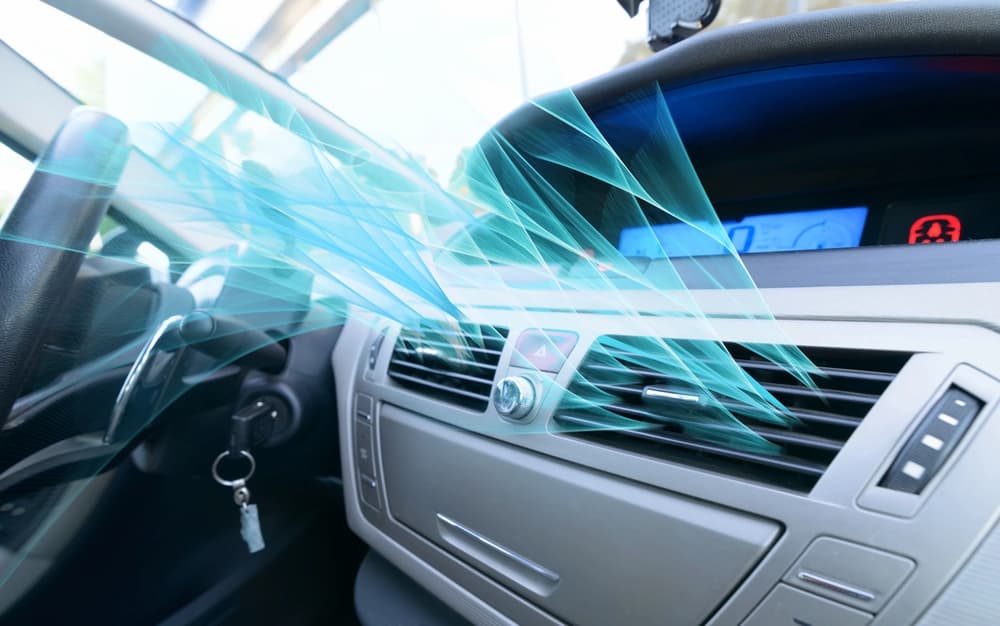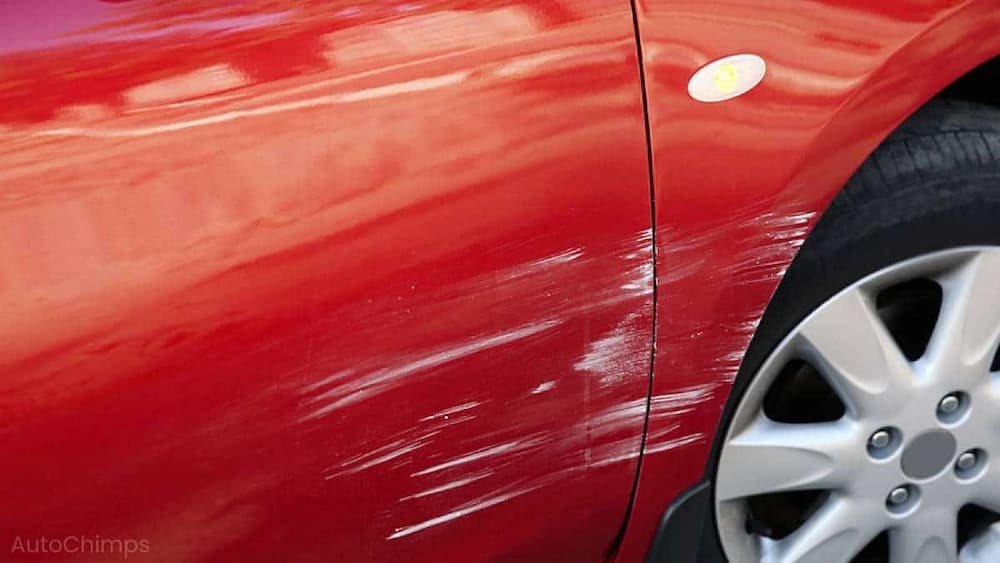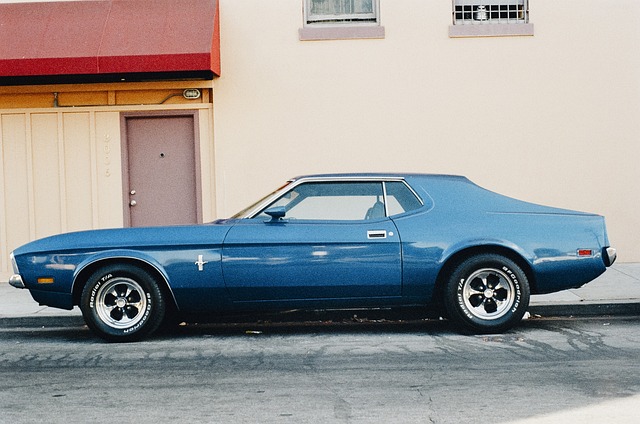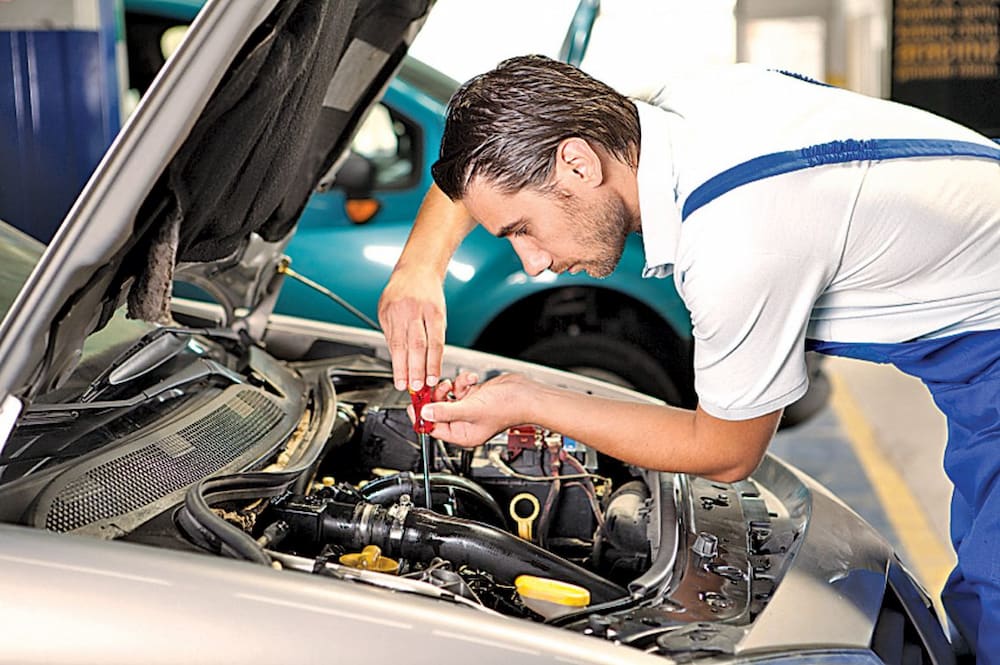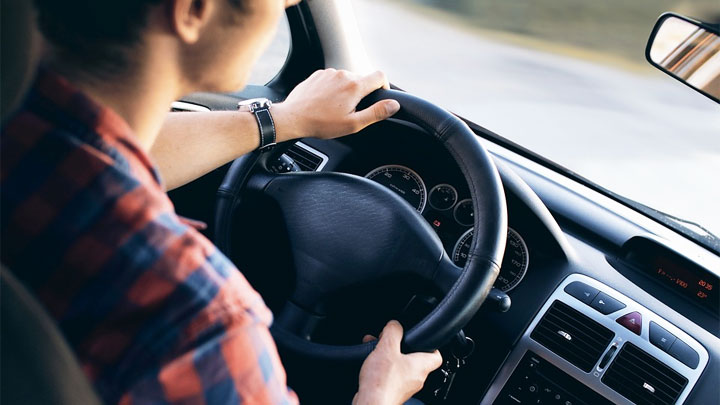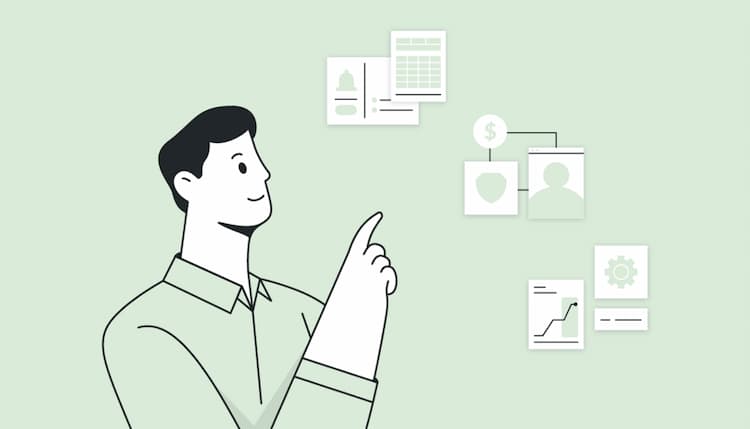It is common that car squeaks when driving.
Car squeaks when driving typically is an indication that something is wrong.
In many cases, it’ll be a minor problem that’s easy to fix, but it could also be an early warning sign of something more serious.
No matter how tempting, it’s never a good idea to ignore something and hope it goes away. Instead, get it fixed as soon as you can.
Please continue reading for more information.
Table of Contents
Why Does Car Squeaks When Driving?
The most common reason for your car to squeak while driving is worn-out brake pads, but let’s look at a few more possible causes:
- Worn brake pads: In fact, when it’s time to have your brakes checked, brake pads are designed to squeak.
- Loose fan belt: When accelerating or turning on your car in cold weather, a high-pitched squeal will be heard if your fan belt, also known as the serpentine belt, is loose or worn out. This might also point to an issue with your timing belt.
- Vacuum leak: One of your air intake system hoses may be leaking if the sound is more like a whistle coming from underneath the hood.
- Low steering fluid: It’s possible that your power steering fluid is low or contaminated if you hear a squeak when turning.
- Worn-out ball joints: If the sound happens when you turn and adding power steering fluid didn’t fix the problem, your ball joints may be worn and need to be replaced.
- Faulty alternator: Your engine will make a squeaky noise if your alternator is broken, which is the most serious cause. Additionally, there might be a burning odor and a warning light on your dash.
You should always get your car checked as soon as possible if you notice any unusual sounds going on.
The other side of caring for your car is making sure you have adequate auto insurance coverage. Keeping your car in top condition is just one aspect of car maintenance.
Why Does My Car Keep Squeaking?
The RAC’s guide to unusual car sounds points out that “modern cars are well-oiled machines, so when they start making sounds they shouldn’t, it’s a concern.”
Below are some of the more common reasons for hearing squeaking noises:
- Issue with the serpentine belt
- Worn alternator bearings
- Failing cambelt or water pump pulley
- An accessory or ‘v-belt’ nearing its end
- Brake pads need changing
- Power steering system problems
- Suspension system problems
- Steering wheel housing rubbing against the interior rim
- Tyres that are worn
What Causes The Squeaking While Driving?
You can evaluate the situation with your vehicle and then take the necessary action by figuring out where and when the squeaking noise happens.
Squeaking When You Turn On The Ignition
While a squeaking noise is not something anyone wants to hear before setting out on a journey, there are two potential causes that could be found under the hood: serpentine belt slippage or pulley misalignment and wear. Replacement is the response to both problems.
A few of your car’s accessories, including the air conditioner, power steering, alternator, fan, and occasionally the water pump, are driven by the serpentine belt. If the squeaking is caused by a belt issue, it’s likely either a worn-out belt, worn-out bearings, or a tension issue with the belt.
It may be a problem with the tensioner pulley, which applies the proper amount of pressure to the belt, or it may be a result of a belt that is too loose or too tight. The belt may slip and squeak if it is too loose.
If the serpentine belt, also known as a drive belt, has some wear and tear, it needs to be replaced. A general guideline is over five years or over 50,000 miles, or check the owner’s manual to determine the ideal time for replacement.
Squeaking Alternator Pulley
The vehicle contains pulleys for the air conditioner, power steering, idler, tension, and alternator. Each of these pulleys has bearings, and if one of them is bad, the pulley may wobble and make a squeaking noise.
Wear or misalignment of the pulley can also be to blame. The belt on the pulleys is intended to run straight; if it is squeaking because it is moving side to side on any of the pulleys.
Even though this squeak is minor and can be fixed by changing the belt, it can be annoying. A skilled mechanic will identify what needs to be replaced.
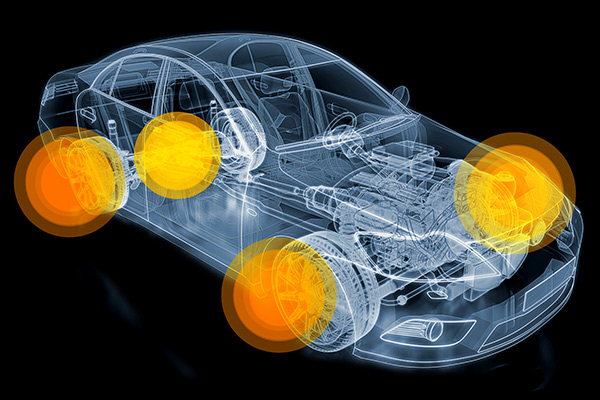
Squeaking Around The Cambelt
The crankshaft and camshaft, the internal combustion engine of the car, rotate in synchrony thanks to the cambelt, also known as a timing belt.
Because it is susceptible to wear and tear like all belts, the manufacturer’s guidelines specify how frequently it needs to be replaced.
A loose belt and the need for replacement may be indicated by a squealing sound. Other collateral damage could result from a broken cambelt, and the repair work may be expensive.
Squeaking From The Water Pump Pulley
According to Your Mechanic sometimes that squeak that seems to come from the area around the cambelt could also be a failing water pump pulley or noise transference due to the serpentine belt slipping.
A water pump pulley with bad bearings will make noise. They might eventually stop working, which would result in the engine overheating and costing money.
The squeaking noise that appears to be coming from the cambelt may actually be caused by the serpentine or v-belt slipping, which causes the noise to be transmitted to the timing belt.
Squeaking When You Speed Up Or Slow Down
If your car is squealing when you accelerate or slow down, it could be the v- or v-ribbed belt and needs to be checked thoroughly for any cracks or holes.
All of the auxiliary units in your car are driven by the v-belt, which is why if it breaks, your car will stop working.
The good news is that changing the v-belt is a reasonably simple and inexpensive repair.
Squeaking Noises When You Press The Brakes
It’s common for a squeaking or screeching sound to be heard when applying the brakes to be the first indication that the brake pads need to be replaced. When brake pads are worn out and thin, this noise happens.
This crucial component, according to Car and Driver, is considered a ‘normal-wear item’ that must be maintained for your safety and the safety of others. You can find out how frequently to change your brake pads in your car’s manual.
“There are crucial parts for car maintenance as well as important parts. Brake pads are crucial,” says Car Driver.
Some vehicles have brake-pad sensors on the dashboard that will sound an alarm when it’s time to replace them. Consider that squeaking sound as a warning light if your car lacks a sensor.
Squeaking As You Turn The Steering Wheel
When the car is turning, a squeaking sound may be coming from the power steering, which could be a sign of trouble.. If your power steering breaks down while you’re driving, it could be dangerous.
Any of the power steering system’s parts, including the steering gear, pump, or hose, could be having an impact on how it operates. Get a qualified mechanic to examine your power steering system as soon as possible to identify the issue.
If the power steering fluid is low or contaminated, you might hear a squeaking sound. A leak or contamination will cause the noise because the power steering fluid is essential to lubricating the power steering system.
When turning, a new car may squeak due to the steering wheel housing rubbing against the interior trim, wearing it out. In hot weather, the steering metal material expands to close the space between the interior trim, which causes a problem. A challenge that your mechanic will have to overcome.
Squeaking As The Car Is Turning
If your car is squealing and pulling to the side as it turns, there is likely to be an issue with your tyres, such as:
- an uneven tread
- underinflated tyres
- improper alignment
Of course, it’s required by law to keep your tires in good condition. It’s also important for safety and could affect your auto insurance if a collision occurs due to damaged tires.
Michelin suggests regularly checking tyres to make sure treads are not worn. If they are more than five years old, think about replacing them. Additionally, frequently (every 2-3 weeks) check the tire pressure to see if any are underinflated.
Take your car to a garage if they are consistently underinflated so they can be inspected for damage. Tyres may need realigning if your car isn’t steering properly and is making a loud screeching noise while you’re driving.
Just sometimes the noise you hear could be from tyres meeting road surfaces and are normal as Tyre Shopper explains. However, you should always check your tires if they make any strange noises.
Squeaking Noises From The Suspension
Your car’s suspension squeaking may be a sign of a more serious issue.
The suspension system reduces shocks and vibrations caused by road imperfections like potholes and bumps on the wheels. The ride is smooth as a result.
If the suspension system is the source of a squealing sound, any of its parts—from worn-out springs and shock absorbers to worn ball joints and bushes—could be at fault. Alternatively, if the suspension system stops being lubricated. See more about Reasons Your Car Jerks While Accelerating
How Can I Stop The Squeaking In My Car?
Maintaining routine auto maintenance is the best way to stop squeaking and other issues from appearing. Follow these simple steps to keep your motor in tip-top condition:
- Carry out routine checks of your fuel, oil, coolant, tyre pressure and electrics and top up fluids regularly
- Get your car serviced at least once a year, or according to your car’s servicing schedule, to make sure everything’s in good working order
- Drive smoothly to reduce wear and tear on the components, and try to avoid potholes where possible
- Keep the weight down so you’re not putting unnecessary pressure on the tyres, brakes and suspension
- Don’t ignore dashboard warning lights – they’re there for a reason.
My Car Is Squeaking. Will That Affect My Insurance?
In most cases, maintaining your car is a requirement of your auto insurance policy. This is true not only because it keeps you safe and extends the life of your car.
Not keeping your vehicle well maintained and in a roadworthy condition is against the law and could invalidate your car insurance policy if you need to make a claim. Driving a car in a hazardous condition also puts you at risk for a fine and license points, both of which will almost certainly raise your insurance rates.
It is up to you to fix a squeaking issue because a car insurance policy won’t cover maintenance repairs.
FAQs
My Car Squeaks When Turning; Why?
Low power steering fluid is the most likely culprit if your car makes a squeaking noise when you turn it. Low power steering fluid indicates that your power steering system is inadequately lubricated, which leads to parts rubbing against one another and producing a squeaking noise. You don’t need a mechanic to identify this issue; you can simply check the fluid level.
To locate the power steering reservoir and check the fluid level, all the information you require about your car’s power steering system can be found in your owner’s manual.
Owning a car requires regular maintenance, including checking your vehicle’s fluid levels.
Why Squeaks My Car When I’m Going Slowly?
When you drive slowly, brake discs and pads with poor installation or wear will frequently make a squeaking sound.
When you apply pressure to the brake pedal, the brake calliper clamps around the brake pad and slows the motion. Over the course of a vehicle’s life, brake pads will likely need to be replaced at least once because they get thinner the more you use them. Metal rubbing up against metal produces the squeaking sound.
If you suspect a mechanic has fitted your brakes poorly or needs to replace them, you can compare quotes with WhoCanFixMyCar.
Compare Brake Repair Prices
Why Does My Car Squeak As It Speeds Up?
A loud or high-pitched squeak while accelerating could indicate a worn or loose fan belt.
Different vehicles have various belt systems; while some may have a serpentine belt, others may have a number of smaller accessory belts. These belts are crucial in distributing the engine’s generated rotational energy to its various components. It keeps your fan, air conditioner, power steering pump, water pump, and alternator operating.
If your fan belt is squeaking, the rubber belt is probably sliding off the metal pulley. You should perform several visual examinations to assess the condition of your fan belt system. Check to see, for instance, if any cracks have appeared or if any ribs are missing.
The best course of action is to take your car to a garage to have the fan belt replaced if there are signs of damage before it completely breaks (and causes significantly more damage).
What Causes My Car To Squeak When It Brakes?
Avoiding hard braking (unless absolutely necessary in an emergency) can sometimes solve the problem of squeaky brakes!). The issue might be worse in other situations.
Rusty Brake Rotors
Your brake rotors might rust over time, which would increase the friction between the brakes and the rotor and cause a squeaking sound. You should take your car to a qualified expert to determine whether this issue can be resolved without a complete brake rotor replacement, such as by filing away the rust and debris.
Worn Out Brake Pads
Squeaky brakes are likely a sign that you need to schedule an appointment for brake pad replacement if you’re driving an older car.
New Brake Pads
Metallic brake pads, one of the three primary types of brake pads (the others being organic and ceramic), are frequently used on modern automobiles. They are very effective but also prone to noises like squeaking.
Conclusion
Keep a close eye on where and when the sound happens. For instance, does it happen when you start the engine, while the car is idling, when it accelerates, turns, or when you drive over a bump?
Once you’ve determined when it occurs, describe the issue to a skilled mechanic, who should be able to identify and resolve the problem.
Whatever the reason for the squeaking, it’s crucial to take quick action as soon as you hear it. Even minor problems can become more serious (and expensive) to fix if they lead to a breakdown.
I appreciate you reading.

